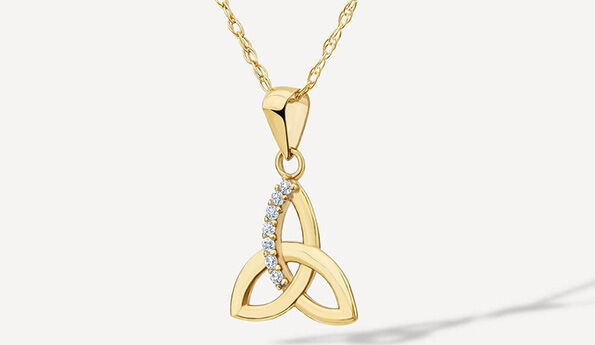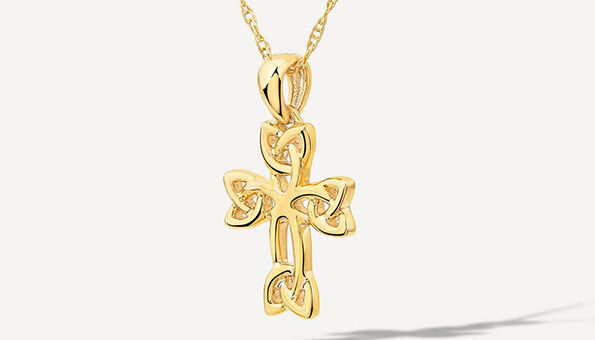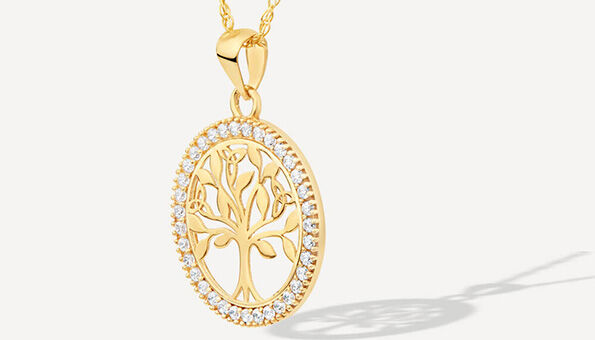Understanding Celtic Jewellery Symbols and Their Meanings
Enter the fascinating realm of Celtic jewellery, where every piece narrates a story of rich history and profound symbolism. The charm of Celtic designs, rooted in the ancient culture of Ireland has crossed geographical boundaries, captivating hearts globally.
Here we delve into the enthralling stories behind key Celtic symbols such as the Claddagh, Celtic and Trinity Knots, Celtic Cross, Harps, Shamrocks, and the Tree of Life.
A TAPESTRY OF HISTORY AND CULTURE
The history of Celtic jewellery is intricately interwoven with the compelling narratives of Irish and other Celtic countries. Each symbol carries profound meanings, reflecting the spiritual beliefs, artistic expressions, and intricate craftsmanship of these ancient peoples. Today, these symbols resonate not only with the Celtic diaspora but also with admirers worldwide, drawn to the timeless elegance and rich cultural heritage.
Celtic and Trinity Knots: Infinite Spirals of Meaning
The intricate Celtic Knot, renowned for its perpetual loops and twists, symbolises eternity and interconnectedness.
Similarly, the Trinity Knot, or Triquetra, signifies the unity of three elements, often interpreted as Earth, Wind, and Water or the Holy Trinity in Christianity (Father, Son, and Holy Spirit).
CELTIC CROSS: MERGING FAITH AND HERITAGE
The Celtic Cross, distinguished by its circle intersecting the cross, originated in the early Middle Ages.
Legend has it that St. Patrick fused the Christian cross with a pagan standing stone, creating a symbol that beautifully blends spirituality and cultural history.
THE ALLURE OF THE CLADDAGH
At the core of Celtic romance lies the Claddagh, a symbol embodying love, loyalty, and friendship. Originating in the 17th century in the fishing village of Claddagh, near Galway, Ireland, the Claddagh Ring boasts a unique design featuring a heart (love), hands (friendship), and a crown (loyalty). There are many symbolic ways to wear the Claddagh:
- On the right ring finger with the heart facing outward: signalling the wearer is single and open to love.
- On the right hand with the heart facing inward: indicating the wearer is in a committed relationship.
- On the left ring finger with the heart facing outward: symbolising engagement.
- On the left hand with the heart facing inward: representing marriage.
HARPS: MELODIES OF THE CELTIC SOUL
The Celtic Harp, associated with the Irish ruling class, is a symbol of skill and cultural richness. Its strings, representing the arms of a king, were played at feasts and noble gatherings, preserving cultural heritage through haunting melodies. Today, the harp remains the National Emblem of Ireland.
SHAMROCKS: LUCK AND SPIRITUALITY
Derived from the Irish word 'seamróg,' meaning little plant, the Shamrock is a cherished symbol believed to have been used by St. Patrick to explain the Holy Trinity. Beyond religious connotations, it is also considered a charm for good luck.
As you traverse the world of Celtic jewellery, you embark on a journey through time, where symbols transform into storytellers, and each piece reflects the deep cultural tapestry of the Celtic people.
Whether it's the romance of the Claddagh, the perpetual loops of Celtic Knots, or the spiritual connections of the Tree of Life, each symbol invites you to embrace a piece of Celtic history and wear it with pride, wherever in the world your Celtic spirit may roam.



